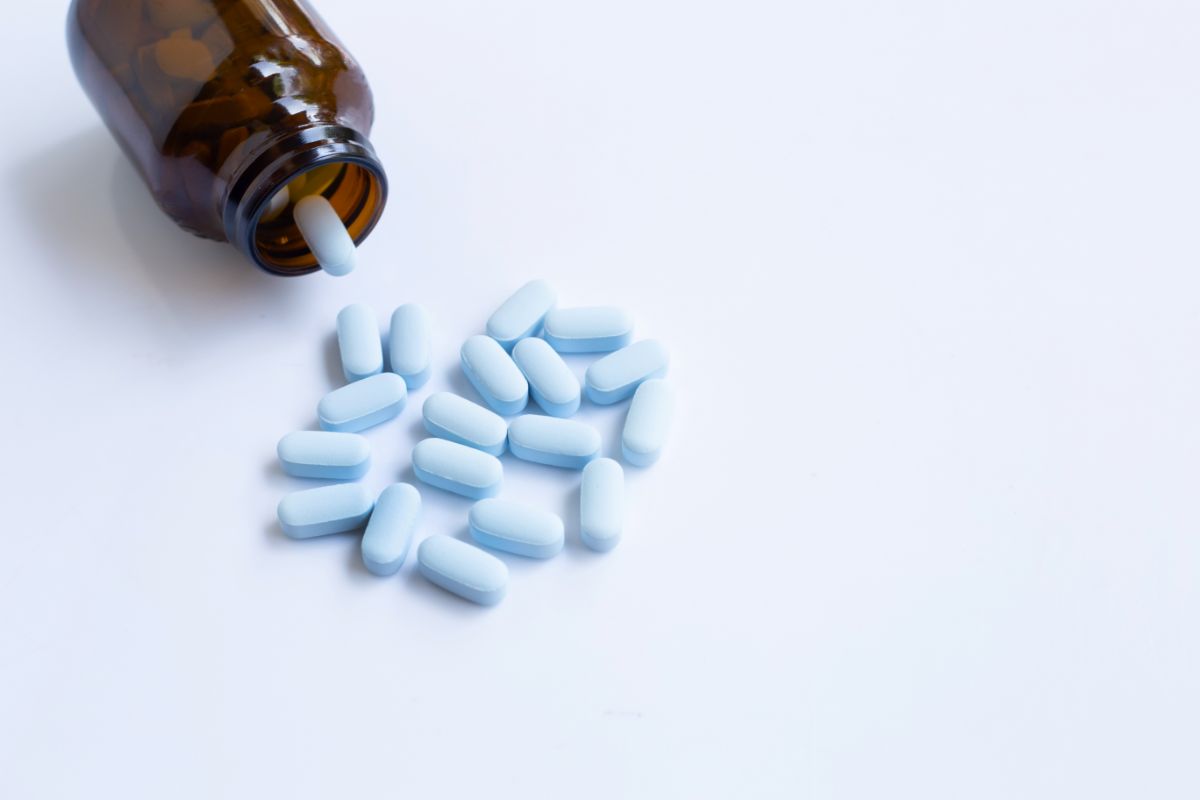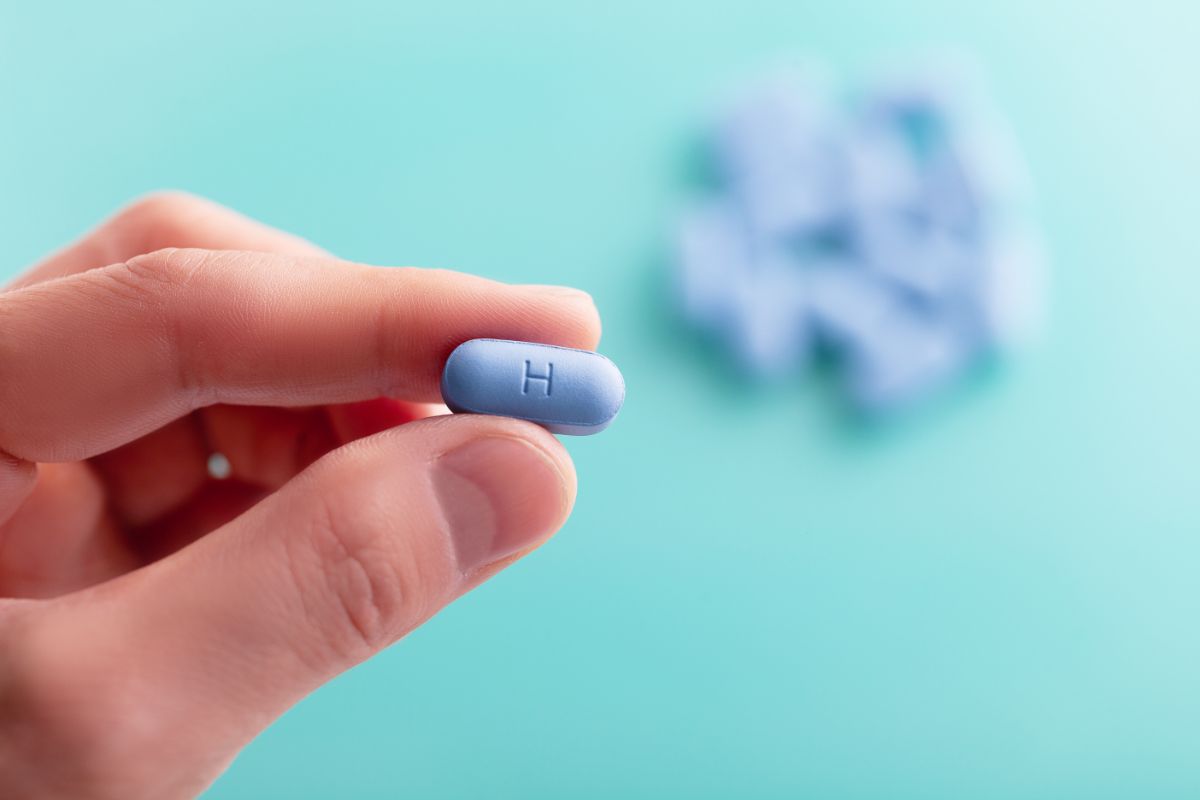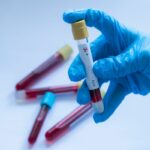PrEP, otherwise known as pre-exposure prophylaxis, is a form of medication that has been proven to be incredibly effective at preventing the transmission of HIV.
This medication usually works by stopping the virus from reproducing and increasing within the body.

Many people are resistant to taking PrEP due to the side effects, and sadly, this prevents many from taking this form of medication.
A recent medical study has proven that 42% of respondents do not take PrEP as they were concerned about potentially negative side effects.
Firstly, it is crucial to know that the vast majority of people who take PrEP do not experience any side effects during the course of taking their medication.
In fact, studies have shown that just 2% of participants have reported experiencing adverse effects from taking this form of medication.
Every person will react in a different way to specific types of medication. Some people may be far more sensitive to the impact of medication, and thus, they may experience more side effects than other people do.
In addition, there are numerous factors like preexisting health concerns, and allergies, that may influence your body’s overall reaction to taking any form of medication.
What Are Start-Up Period Side Effects?
Typically, the majority of side effects produced by taking PrEP will take place during the ‘start-up’ period. This is the period when you initially start taking medication.
These side effects will usually occur within the first couple of weeks thereafter, and they are usually tolerable.
Some side effect that participants have reported experiencing include the following:
- Nausea
- Vomiting
- Dizziness
- Loss of appetite
- Weight fluctuations
- Rashes
- Abdominal discomfort
- Tiredness
- Fatigue
Many of these side effects will occur because of the way in which PrEP increases the amount of enzymes contained in the liver, in order to fight the HIV infection. This may cause bloating, constipation, and other gastrointestinal problems.
If you have experienced any of these side effects, you can contact your doctor or medical team to raise your concerns. Usually, most over-the-counter medications will be able to relieve these issues.
The side effects of taking PrEP can vary dramatically depending on which form of medication you take. Truvada and Descovy are two forms of medication that are prescribed for PrEP.
Due to the fact that each form of medication contains a distinctively unique formula, the side effects of both forms of medication will differ.
What Are The Side Effects Of Truvada?
Truvada was the initial form of HIV PrEP medication approved by the FDA. It has also been approved for transgender males and female, and uses a combined formula of tenofovir and emtricitabine in order to block the enzymes that are created by HIV in order to reproduce.
Additionally to the more common types of side effects that are experienced during the start-up period, those patients who take Truvada for PrEP purposes experienced some more side effects.
The most common of these additional side effects were weight loss, headaches, and stomach cramps.
Another side effect of Truvada is its impact on kidney health. This is because Truvada can potentially decrease the filtering of the kidneys. Thus, most doctors will assess the patient’s kidney functionality whilst they are taking PrEP medication.

For those patients with preexisting health conditions, Truvada may enhance the risk of developing kidney failure.
Truvada has also been proven to decrease bone density in some patients, which means that the body can become far more vulnerable to bone fractures. However, this is usually reversible and tends to remain mild in most cases.
What Are The Side Effects Of Descovy?
Descovy is usually only approved for cisgender males and transgender females. However, it is being tested for use in all genders.
This type of medication consists of a vastly different drug formulation that incorporates antiretroviral agents in order to decrease the overall viral load of the HIV infection, and thus, prevent the virus from rapidly reproducing.
It is important to note that, during a recent trial, only 1% of participants stopped taking Descovy as a result of experiencing side effects.
In addition to this, an even smaller percentage of participants experienced common side effects like nausea, headaches, fatigue, abdominal issues, and diarrhea.
What Other Side Effects Should I Look Out For?
It is important that you discuss any preexisting health conditions with your doctor prior to taking PrEP medication. You should closely follow the recommended testing routine from your medical team so that they can pay close attention to your health.
If you do notice any adverse effects on your health while you are taking PrEP, you should discuss this with your doctor immediately.
There are some key symptoms to watch out for while you are taking a course of PrEP medication.
These include the following:
- Yellowing of the eyes
- Yellowing of the skin
- Loss of appetite
- Change of color in stool
- Excessive abdominal pain
- Irregular heartbeat
- Bone tenderness
- Shortness of breath
Conclusion
To conclude, the benefits of taking PrEP medication drastically outweighs the chance of developing any potentially negative side effects.
Taking this medication also ensures that you protect yourself or your sexual partner against the risk of contracting HIV. For the vast majority of those who take PrEP, the side effects will remain small and undoubtedly manageable.
However, if you do experience any extreme side effects, you should contact a medical professional immediately. You should also bring up any health concerns with your doctor, so that they are able to closely monitor your health.
The vast majority of people who take PrEP medication will not experience any side effects at all, however, those who do experience side effects usually report experiencing headaches, nausea, abdominal cramps, tiredness, and fatigue during the initial start up period.
It is crucial to know that these symptoms usually pass pretty quickly.
- Understanding Male Reproductive Health: A Complete Guide - February 2, 2025
- Simple Healthy Skin Habits for Radiant Skin - December 6, 2024
- Unlocking the Connection Between Nutrition and Mental Health - December 3, 2024


![Prenatal HIV Transmission What Is Perinatal Hiv And When Does It Occur? [Explained]](https://alphanutrition.com/wp-content/uploads/2022/08/What-Is-Perinatal-Hiv-And-When-Does-It-Occur-Explained-150x150.jpg)





